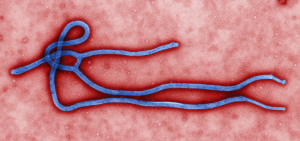 Over the past 15 years, outbreaks of Ebola, Middle East Respiratory Syndrome (MERS), Severe Acute Respiratory Syndrome (SARS), and H1N1 have demonstrated the lack of an adequate local and global health system infrastructure to prevent or mitigate the systemic burdens that result from infectious disease incidents of international significance.
Over the past 15 years, outbreaks of Ebola, Middle East Respiratory Syndrome (MERS), Severe Acute Respiratory Syndrome (SARS), and H1N1 have demonstrated the lack of an adequate local and global health system infrastructure to prevent or mitigate the systemic burdens that result from infectious disease incidents of international significance.
A new multinational, independent expert commission has been established to study and recommend what is needed for a more effective global architecture for countering the threat of epidemic infectious diseases. This Commission on a Global Health Risk Framework for the Future — for which the National Academy of Medicine (NAM) is providing support in the form of project management services — will have its first public meeting Wednesday, July 29, in Washington, D.C. The meeting will include sessions on the background for and the charge to the Commission; the landscape of related global initiatives; key challenges and lessons learned for preparedness and response to globally significant infectious disease outbreaks; and the role of government, communities, and the private sector in responding to outbreaks of global significance.
Eighteen members from 11 countries comprise the Commission, which is headed by Peter Sands – former group chief executive officer, Standard Chartered Bank PLC, and senior fellow, Mossavar-Rahmani Center for Business and Government, Harvard Kennedy School of Government – as chair, and Oyewale Tomori, president, Nigeria Academy of Sciences, as vice-chair. After its initial meeting, the Commission will gather evidence for its report from four workshops held in August and September in different parts of the world. Beyond capturing lessons learned from the recent Ebola and other global outbreaks, workshop topic areas include governance for global health, financing to contain pandemic threats, resilient health systems, and research and development of medical products. The Commission’s final report is scheduled to release before the January 2016 meeting of the World Health Organization Executive Board.
The NAM and National Academies of Sciences, Engineering, and Medicine affiliation with the Commission is limited to providing project management and staff expertise; the final report with the Commission’s consensus conclusions and recommendations will not be issued as a product of NAM or the Academies. More information on Commission activities — including the first meeting agenda, members, workshops, statement of task, and work plan — is available here.
Details
Open sessions of the meeting will be held from 9 a.m. to 1 p.m. EDT on Wednesday, July 29, in the Lecture Room of the National Academy of Sciences building, 2101 Constitution Ave., NW, Washington, D.C. Those who cannot attend in person can view the meeting via live webcast here. Media inquiries should be directed to the Academies’ news office; tel. 202-334-2138 or e-mail news@nas.edu.
The Commission on a Global Health Risk Framework for the Future is funded by the Paul G. Allen Family Foundation, Ford Foundation, Bill & Melinda Gates Foundation, Mr. Ming Wai Lau, Gordon and Betty Moore Foundation, Rockefeller Foundation, United States Agency for International Development, and Wellcome Trust.
Photo credit: CDC.
